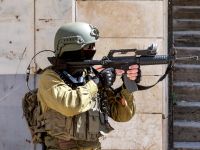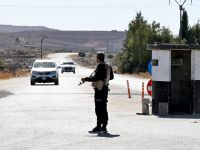Hours after U.S. safety investigators blamed an Egyptian co-pilot for the downing of an EgyptAir jetliner in 1999, the airline and a relative of the man rejected the report, saying Thursday that U.S. investigators were biased from the start of the probe.
According to AP, the National Transportation Safety Board stated no evidence found of any mechanical problems with the Boeing 767, which during October 1999 plunged into the Atlantic Ocean off the Massachusetts island of Nantucket, killing all 217 people aboard.
Rather, the report concluded that co-pilot Gameel El-Batouty was alone in the cockpit when he disconnected the autopilot, reduced power to the engines, and diredted the plane downward. The board's report offered no reason for these actions. There has been speculation that El-Batouty committed suicide.
Walid el-Batouty, the co-pilot's nephew and spokesman for the families of the Egyptian victims, rejected the report's conclusion.
"We are not giving this report any consideration as it is not based on fact. The Americans still have to prove the suicide theory," he said. "It was very clear from the beginning that all the Americans cared for was to protect their interests, such as Boeing's interests."
EgyptAir's chief official investigator objected to the NTSB findings and called for a reopening of the American investigation.
"We want the Americans to reinvestigate the case as they have not considered several points presented by Egyptian investigators" including proper checks on the plane's tail, cockpit voice recordings and radar and flight control data, Mohsen El-Messiri told reporters in Cairo.
El-Messiri said EgyptAir would officially respond in writing to the NTSB findings within days. The airline believes the crash may have been caused by a problem in the plane's tail.
Egypt's civil aviation authority also said it would formally appeal the NTSB final report. "The Egyptian Civil Aviation Authority (ECAA) announced it will formally appeal for reconsideration of the NTSB's findings of probable cause," said the ECAA in a statement.
"NTSB investigators failed to consider a credible body of evidence supporting multiple failures in the aircraft's elevator control system as the probable cause of the accident and, as a result, further investigation is required," it said.
According to the ECAA, "errors in translating words on the cockpit voice recorder caused the NTSB to focus its attention on the presumed actions of the pilot." At the time of the crash, the Cairo-bound plane was controlled by el Batouty, who according to on-board recording devices, uttered something resembling a prayer before sending the airliner toward the ocean.
According to AFP, the ECAA cited a number of examples of what it said were defects in the investigation, including failure to determine the cause of damage to the plane's elevator system and to analyze unidentified sounds and words on the cockpit voice recorder. (Albawaba.com)
© 2002 Al Bawaba (www.albawaba.com)







